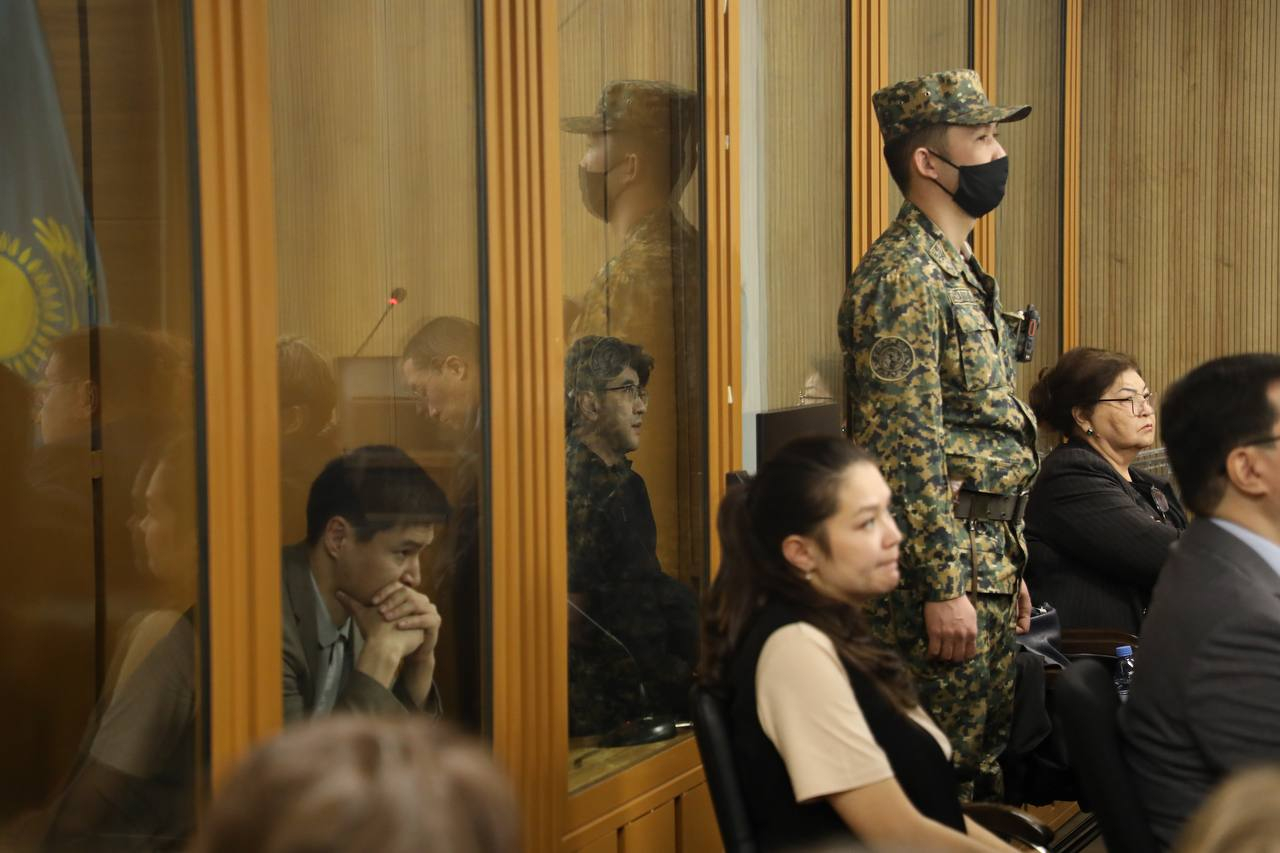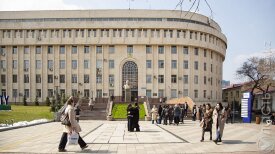Court hearings have continued in Astana all week in the trial of Kuandyk Bishimbayev, the former minister of economy, who is accused of beating and killing his wife Saltanat Nukenova. The trial is being live streamed, attracting the attention of millions. The high-profile case is also giving resonance to the ongoing debate on gender-based domestic violence in Kazakhstan.
Several demonstrations under the banner #ForSaltanat were planned. On April 12, a one-person picket in Almaty called for justice in the case regarding Nukenova. Other demonstrations are planned for April 13 in Milan, Rome, Florence, Bologna, and Turin (Italy), in Munich (Germany), in Barcelona (Spain), in Tbilisi (Georgia), in New York and San Francisco (US), and in London (UK). On April 14, another demonstration will take place in Budapest (Hungary) and in Paris (France).
The Senate approved on April 11 a series of legislative amendments that would provide for tougher punishment for domestic violence. The new amendments were likely prompted by the trial against Bishimbayev. Feminist activists have for years demanded the passing of a law that would make domestic violence a criminal offense.
Several regions in northern and western Kazakhstan continue to be affected by massive floods. Around 100,000 people have been rescued so far and the government said the state of emergency continues. At least two people were found dead in Kulsary, in the Atyrau region. On April 10, the ministry of agriculture said that at least 8,100 corpses of cattle, horses, and sheep were found after the floods.
A prosecutor in Almaty asked on April 12 that the 11 defendants in the case of the attack on the Presidential Residence in January 2022 be sentenced to 10-12 years in prison. The ongoing trial concerns the popular uprising during Qandy Qantar (Kazakh for ‘Bloody January’). Among the defendants, one is already in prison for related charges. Other two defendants were arrested during the violent repression of the protests and were among the first to denounce the torture they suffered while in detention.
Askhat Niyazov, a popular journalist, became the subject of a pre-trial investigation on April 9. The investigation concerns Niyazov’s reposting of an appeal regarding journalists of the local service of Radio Free Europe/Radio Liberty, who were denied accreditation. The ministry of culture and information said the post could “disturb public order”. The next hearing will be held on April 22.
During a discussion around amendments to the Criminal Code, two deputies of the Amanat ruling party, Yedil Zhanbyrshin and Samat Musabayev, proposed to add the “propaganda of non-traditional sexual orientation” on April 10. The proposal was quickly removed from the discussion, but it falls within a recent campaign to restrict freedom of the press in relation to topics about the LGBT+ community.
In an effort to prevent market speculation, the ministry of energy proposed on April 11 to establish a higher fuel price for foreigners. Kazakhstan’s gasoline is among the world’s cheapest and the government fears that, within the framework of the Eurasian Economic Union (which also includes Armenia, Belarus, Kyrgyzstan, and Russia), the low price could be exploited to circumvent export bans. According to the proposal, the check would be made at the pump, where drivers would have to show their license.
The Central Bank kept interest rates unchanged at 14.75% during a meeting on April 12. The regulator had cut rates for five consecutive times since August 2023, in light of slowing inflation.
Поддержите журналистику, которой доверяют.








